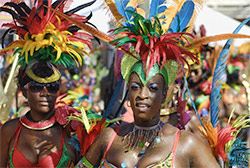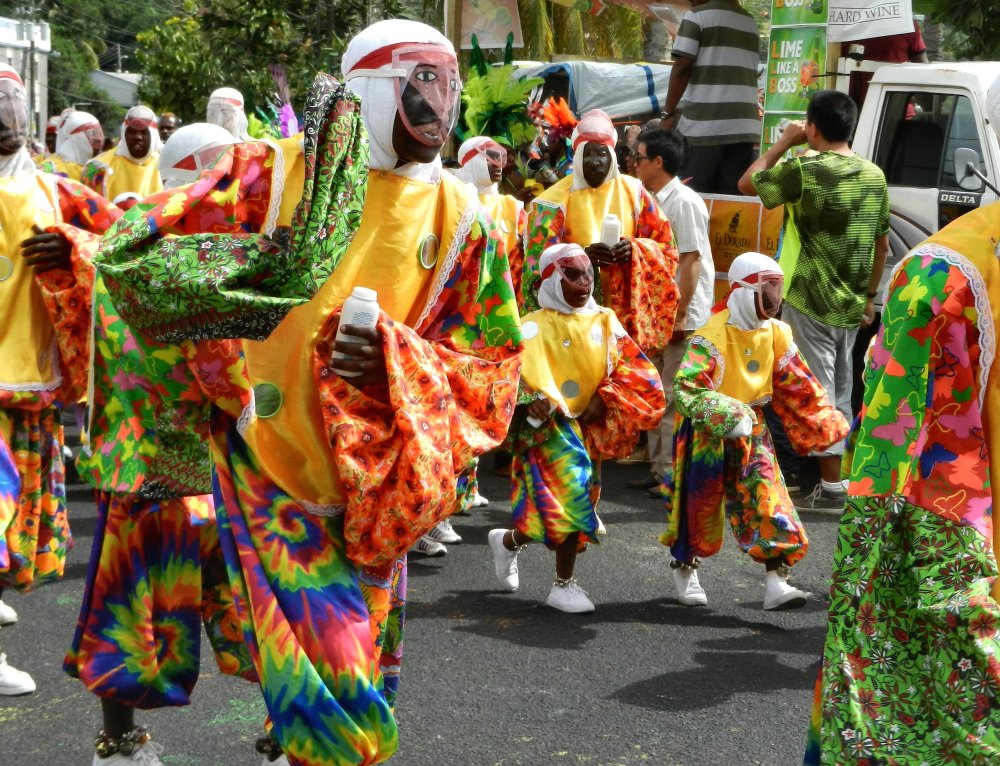|
Getting your Trinity Audio player ready...
|
Reading Time 2 mins
A CARNIVAL STORY
By M. Martin Lewis
Note well: I’m not talking about this lovable cuddly Shortknee in New York that Val and company play every year, advertising in Carib News and lifting their masks to peer into NBC cameras on Eastern Parkway. As anything in New York, that’s the watered down version of my earliest fears. A real Shortknee’s face was never exposed; you guessed at who it was.
Exposing the identity of the Shortknee was a no no. Not one part of a Shortknee body’s could ever be exposed, and therein lay the evil; how do you know anything human occupied those clothes?
Gouyave and Victoria or Victoria and Gouyave, in one of their scarce displays of unity, did bring a Vecco band one year. They violated some sacred Shortknee laws and the rest was history. For one they violated the upper limit rule of no more than 20, they were too much, hundreds. They used capes, with heavy clogged boots with nails, mauve and black overcoats and black painted “swords” that only the foolish would believe were made of wood, all wrong. True, they did look like death itself, but that was their error. Death is too human, death can be defined. To be really scary, no one must define you, as Mamymaladee, that Shortknee edge the Veckos failed to capture.
Some say they intended to show up Shortknees as being soft, I think it was just another attempt by Gouyave to become Grenada’s capital. Well they came down, they trampled and Carnival was never the same again. History notes a sailor band from the Wharf met them on the Esplanade, no man blinked, two freight trains collided and the street sweepers washed away the red. I know however them conniving Shortknee was behind the whole set up. Historians still have some pictures of the small Shortknee band that went up St.John’s street minutes before the big clash took place. Yes, they led them in and escaped in the melee.
Unlike other mas in small bands, a Shortknee never asked for anything, they would just stop and keep singing. The little wire masks just kept looking in your direction no matter how you turned, in the end you had to fork over money; your Pageant money, your Tuesday money, any money that you had. They needed no chain or rope to keep order or block cars. If you didn’t give money you knew you risked a contract being accepted on your life or on a limb. I remember digging in the crease of my father’s passenger car seat to pay a group that stopped us in Upper Capital one year. My father had answered sheepishly that he had no money. Yes, I saved the family that day. [Link to part 2]
M. Martin Lewis is a political science professor and former Grenadian calpysonian. He currently resides in New York City.

